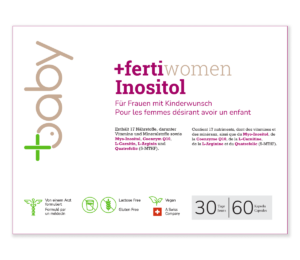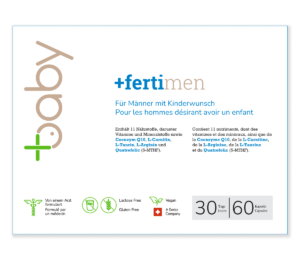Q10 anti-oxidant fertility: In today’s hectic world, our immune system and cellular health are under constant threat from oxidative stress and free radicals. These factors can accelerate premature ageing and affect various aspects of health, including fertility. Antioxidants, in particular coenzyme Q10 (Q-10), play a crucial role in protecting against these threats. This document explores the importance of antioxidants, focusing on Q10, in promoting fertility and combating cellular ageing.



Free radicals are unstable molecules that can cause significant damage to cells. These molecules are generated naturally in the body, but factors such as oxidative stress, UV exposure and certain dietary habits can increase their production. The harmful effects of oxidation include premature ageing of cells and deterioration of vital functions, affecting fertility in both men and women.
Coenzyme Q10, often abbreviated to Q10, is a vitamin-like substance present in every cell of the body. It is also known as ubiquinone, a name that underlines its ubiquitous presence in the human body. Q10 plays several crucial roles in the body’s functioning:
Mitochondria are essential organelles present in almost all eukaryotic cells, including those of the human sexual organs. They are often described as the ‘energy powerhouses’ of cells because their main function is to produce energy in the form of adenosine triphosphate (ATP) through a process called cellular respiration. This energy production is crucial for the functioning of all cells, including those involved in reproduction.
Coenzyme Q10 is closely linked to mitochondrial function and, consequently, to fertility:
Mitochondria play a fundamental role in male and female fertility by providing the energy required for the production and functioning of reproductive cells. Coenzyme Q10, as a key component of mitochondrial function and a powerful antioxidant, is therefore essential for maintaining optimal fertility. Its supplementation can be particularly beneficial for people facing fertility problems or simply wishing to optimise their chances of conception.
Antioxidants, such as vitamin C, vitamin E, selenium, carotene and especially Q-10, help neutralise free radicals. These nutrients act as defenders, protecting cells against damage caused by oxidation. Antioxidant supplementation can therefore play a key role in maintaining cellular health and preventing premature ageing.
Coenzyme Q-10 stands out for its ability to improve the quality of cells, particularly reproductive cells. It is involved in the energy metabolism of cells, promoting a healthy cellular environment, which is essential for optimal fertility. Studies have shown that Q-10 supplementation can improve egg quality in women and sperm mobility in men.
Research has suggested that Q10 may improve certain sperm parameters, such as concentration, motility (the ability of sperm to move) and morphology. This improvement is attributed to Q10’s antioxidant properties, which help protect sperm against oxidative damage.
Oxidative damage in the spermatozoa can lead to an alteration in their integrity and function, thereby reducing male fertility. By neutralising free radicals and reducing oxidative stress, Q10 can help maintain sperm health, a crucial factor in optimal fertility.
This information highlights the importance of Q10 not only for female but also for male reproductive health, underlining its potential role in supporting a couple’s overall fertility.
Coenzyme Q-10 (Q-10) is an essential compound for various processes in the body, including energy production and as an antioxidant. Although it is naturally present in the human body, its concentration can decrease with age or as a result of certain health problems. As a result, it is often necessary to supplement Q-10 intake through the diet or supplements.
Q-10 is found naturally in a number of foods. Among them, meat is an important source, particularly organs such as the heart, liver and kidneys. Oily fish, such as salmon and mackerel, are also rich in Q-10. In addition, legumes such as lentils and peas, as well as certain vegetables and fruit, provide small amounts of Q-10. Vegetable oils, particularly soya oil and rapeseed oil, are other sources of this coenzyme.
It is important to note that cooking can reduce the Q-10 content of foods, so eating raw or lightly cooked foods may be more beneficial for maximising Q-10 intake.
When dietary intake is not sufficient, or when there is an increased need for Q-10, supplements become a viable option. Q-10 supplements are available in several forms, including capsules and tablets. Capsules, in particular, can offer certain benefits:
In the context of Plusbaby and its fertility-oriented products such as +fertimen and +fertiwomen, the use of Q-10 capsules is a wise choice. Incorporating Q-10 in this form not only ensures optimum absorption but also makes it easier to use, in line with their commitment to providing natural, effective and user-friendly products.
In short, whether through diet or supplements, maintaining adequate levels of Q-10 is essential for many aspects of health, including fertility. The use of supplement forms such as capsules can offer significant advantages in terms of absorption and convenience, a key aspect of Plusbaby’s products.
To maximise the benefits of Q10, it is advisable to combine it with other antioxidants such as zinc, magnesium, selenium and vitamins C and E. These synergistic combinations can boost the immune system, improve cardiovascular health and offer comprehensive protection against oxidative stress.
Plusbaby is a company committed to providing solutions for fertility, pregnancy and the postnatal period. Their approach is based on advanced scientific and medical research into fertility and pregnancy, with close collaboration with doctors specialising in gynaecology and obstetrics. They offer a range of 100% natural, vegan products, with no colourings, additives or preservatives, tailored to the specific needs of men and women. Their food supplements, such as +fertimen for men and +fertiwomen for women, incorporate high-quality ingredients, including coenzyme Q10, a key antioxidant for fertility. These products are formulated to support reproductive health and optimise the chances of natural conception, while being accessible and easy to use.
Recent research on Q10 and fertility reveals promising information about its potential role in improving reproductive health.
These findings highlight the importance of Q10 in reproductive health, including improving oocyte quality, a crucial aspect of fertility in women. The combination of traditional methods and modern research techniques offers a unique perspective on the potential benefits of Q10 for fertility.
